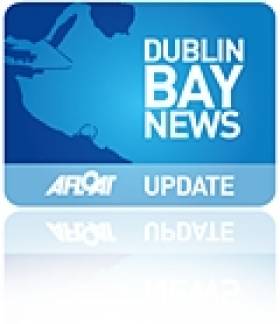Displaying items by tag: Robert Louis Stephenson
Film To Seek "Treasure Island" in Dublin Bay
The 145-foot Earl of Pembroke, a three-masted barque will be centre-stage. Shooting is expected to start in early November for the made for TV movie which is to be broadcast in two parts.
Dun Laoghaire's strategic location on Dublin Bay with close proximity of Dalkey Island, Killiney Bay and Wicklow Mountains to the south coupled with the backdrop of Howth Peninsula, will provide plenty of scope for cinema-photography.
With the Earl of Pembroke to be based in Dun Laoghaire, the harbour town is also home to the film's production company Parallel Film Productions which has included works such as Amongst Women, Breakast on Pluto and the TV series, The Clinic for RTE. In addition the locally based Irish National Sailing School (INSS) on the West Pier, aside from operating sailing activities, have also built up a strong reputation in marine-support and equipment services for film, TV and advertising. Projects have included the films, Saving Private Ryan, Into The West and TV series The Tudors.
The 350-tonnes, Earl of Pembroke is by no means just a floating prop. Launched as Orion, the vessel was built at Pukvik, Sweden in 1948 and for nearly three decades she sailed the North Sea on the timber trade from the Baltic Sea to British ports until laid-up in Denmark in 1974.
The vessel lanquished for several years but in 1979, Cornwall based Square Sail purchased her. In 1985 the vessel underwent a complete restoration programme and in 1994 the vessel re-emerged as a 18th century barque. Among the many film roles, she became the HMS Hotspur in the TV series 'Hornblower'. This year the vessel was involved in a major pirate themed mini-series for French TV which was shot in Corsica. Square Sail's specialisation in providing 'tall-ships' for the film industry also includes the vessels, Keskalot and Pheonix.
























































